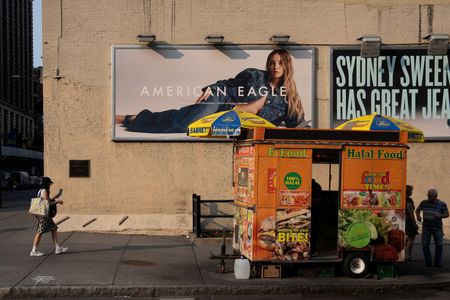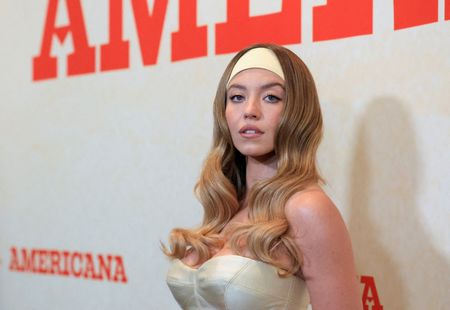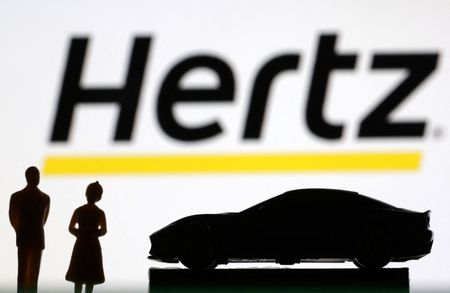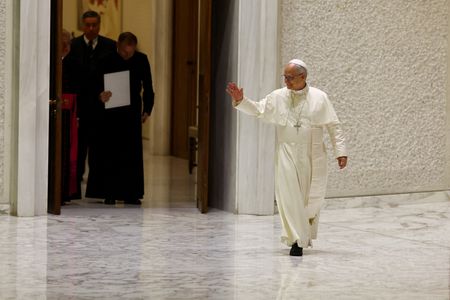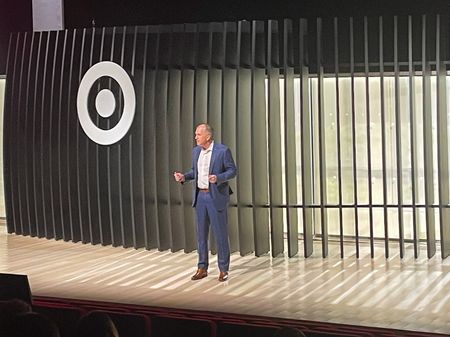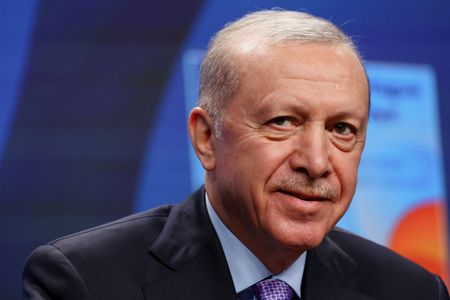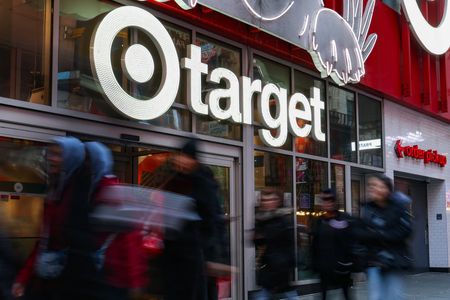By Samantha Marshak
(Reuters) -In an era of short attention spans and a White House that has declared war on diversity programs, companies are embracing edgier marketing. But the strategy can carry risks.
Swiss watchmaker Swatch recently got in trouble for an ad that mimicked racist taunts against Asians and had to apologize. The ad featured an Asian male model pulling up and backwards the corners of his eyes in a “slanted eye” pose. It was not clear if the mistake was an intentional bid to grab attention.
The Swatch misfire was just one in a growing number of norm-breaking advertisements that come amid a rollback in diversity programs in the U.S. In addition, shoppers’ constrained budgets and short memories have prompted companies to green-light riskier ads that they hope will help them stand out in a competitive market.
In pursuit of going viral, companies including American Eagle Outfitters, Dunkin Donuts and Elf Beauty recently released advertisements that were immediately criticized on social media for seemingly promoting white-centric beauty ideals, or for hiring celebrity endorsers who might have negative associations.
American Eagle’s ad featured Sydney Sweeney – an actor popular with Gen Z and known for her parts in hit shows including “The White Lotus” and “Euphoria” – who played on the similarity between the words “jeans” and “genes.”
The commercial was widely panned on social media for possibly raising issues of genetic traits in a racial context. U.S. President Donald Trump even weighed in on the controversy, calling the commercial by Sweeney, a registered Republican, the “HOTTEST ad out there” and saying “Being WOKE is for losers.”
Dunkin followed with an ad featuring actor Gavin Casalegno promoting a new summer drink called Golden Hour. In the ad, Casalegno attributes his tan to genetics, saying “This tan? Genetics. I just got my color analysis back. Guess what? Golden summer. Literally.”
Swatch, American Eagle Outfitters and Dunkin did not immediately respond to requests for comment.
Businesses – especially those that make money from buzzy trends – are pushing the envelope as recent federal actions have shifted the legal and regulatory landscape surrounding diversity, equity, and inclusion (DEI) programs. The notion of inclusivity had been a cornerstone of many companies’ marketing since 2020, when the death of a Black man, George Floyd, at the hands of Minneapolis police, became a catalyst for the Black Lives Matter movement. Five years later, that idea has been de-emphasized.
“Marketers are between a rock and a hard place. They know that the more inclusive they are, the less likely they are to get some social media buzz,” said Allen Adamson, co-founder of marketing consultancy Metaforce. They are taking more risks to try to break through to a younger, targeted audience, he said.
‘UNFORCED ERROR’
Any gains from these ads, though, could be short-lived. They risk harming a brand’s reputation in the longer run and may alienate a large consumer base of non-white shoppers, branding experts said.
“Whether it’s the Black consumer, the Asian consumer, the Latin consumer, when American Eagle does an ad like that, they’re excluding and they’re leaving money on the table,” said Angeli Gianchandani, an adjunct professor at New York University and a brand strategist who has worked with the likes of Tiffany.
Gianchandani said while non-Hispanic white Americans dominate U.S. buying power, these other demographics are growing faster.
L’Oréal faced criticism this month for partnering with a content creator on OnlyFans who posts lifestyle as well as adult content. The move went against the company’s own stated guidelines for working with social media influencers that says these partners will not “engage in behaviours which could be interpreted as … pornography.”
Elf’s ad that starred Matt Rife, a comedian who has made headlines for his joke about domestic violence, drew swift and sharp reaction online. It prompted an apology from the company whose trendy, inexpensive products are a hit with young shoppers.
L’Oreal and Elf did not immediately respond to requests for comment.
“That is not a blind spot; that is a brand knowingly stepping into controversy with someone who does not align with its values,” said Gianchandani, calling the move an “unforced error.”
Unlike Elf, and also Swatch, which apologized quickly for their ads, American Eagle stood by its campaign.
Ashley Schapiro, American Eagle’s vice president of marketing, said on LinkedIn that on a Zoom call with Sweeney, company executives asked her, “How far do you want to push it?” “Without hesitation, she smirked and said, ‘Let’s push it. I’m game.’ Our response? ‘Challenge Accepted’.”
(Reporting by Samantha Marshak and Julaiza Alvarez in New York; Editing by Sayantani Ghosh and Matthew Lewis)

